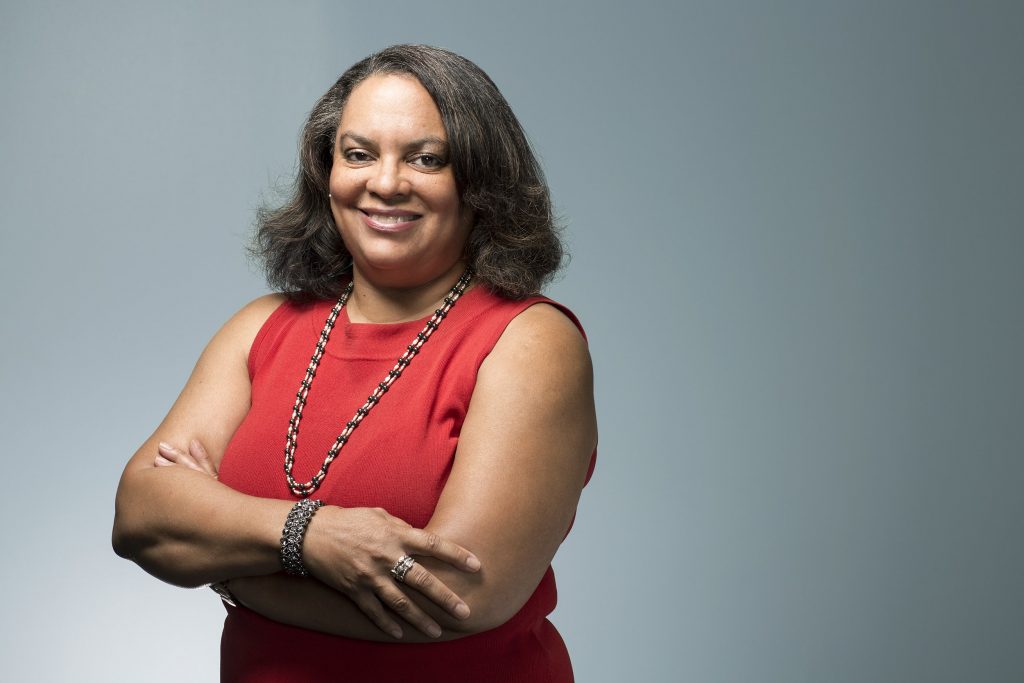The great-granddaughter of anti-lynching activist and investigative journalist Ida B. Wells-Barnett is publicly supporting a campus movement to explore renaming the University of Mississippi’s journalism school to honor her great-grandmother.
Michelle Duster, an author and teacher from Chicago, is the great-granddaughter of Wells-Barnett and has welcomed two history professors’ call for a change to the school’s name.
“It would be a fitting honor for the journalism school at the University of Mississippi to be renamed after my great-grandmother Ida B. Wells,” Duster wrote in a statement to The Daily Mississippian. “She was a native Mississippian who was a trailblazer in the field. She used investigative journalism as a tool to expose injustice, inequality and domestic terrorism in a way that challenged the power structure of our country. Despite the fact that she faced great danger and her printing press was destroyed, she never backed down from documenting facts and telling the truth. Her contribution to journalism is immeasurable and should be an inspiration and model for all who study the field.”
Duster’s stance comes two weeks after more than 100 signees endorsed a petition representing the Ole Miss community’s desire to more effectively address racist and sexist ideologies on campus.

Michelle Duster, great-granddaughter of anti-racism activist Ida B. Wells-Barnett, works as an author and teacher in Chicago. She said she supports the calls for Ole Miss to honor her great-grandmother as the new namesake for the Meek School of Journalism and New Media. Photo courtesy: Philip Dembinski
Professors Jessica Wilkerson and Garrett Felber began drafting a form of this petition just days after Ed Meek’s Facebook post, which many perceived as racist and sexist, drew widespread criticism and caused many students to feel unwelcome on their own campus.
For more coverage of the university’s response to Ed Meek’s Facebook post, visit thedmonline.com.
Wilkerson, an assistant professor of history and Southern studies, said her colleague Felber, an assistant professor of history, penned the first draft of the letter himself. As she explained the letter’s content however, it became clear that the petition’s language accurately represents both professors’ sentiments about the Oxford campus’ ongoing struggle with racism and discrimination.
“We’ve mentioned making some changes on the landscape of the campus, and I think that’s really important. But I think that’s just the beginning of a much longer conversation about how you tackle these deeply rooted injustices in our state and in our country,” Wilkerson said.
She and Felber first sent the petition to history faculty and some “focal points in other departments” via email before sharing it on social media. Students and other community members began signing the petition once the post was shared on Facebook, and Wilkerson said those signees showed her the wide range of effects this petition could have.
“Some staff and some grad students started signing it, even though the petition at that point said, ‘We the undersigned faculty.’ And so Dr. Felber and I talked at that point and decided to make it more inclusive,” Wilkerson said.
To Wilkerson, the petition represents a potential step past condemning Meek’s words but is far from the end of the campus discussion about how to best move forward. She said the goals of publishing this petition are to bluntly label Ole Miss’ issues as what they are and to begin exploring ways to directly address these concerns.
“We cannot dance around these issues,” Wilkerson said. “We have to meet them head-on and call them what they are, and only then can we start to really make some changes.”
Felber said the petition’s goal is one of “outlining the scaffolding” of new ways the university can address events that stem from these types of issues. He said the petition highlights the benefits of working directly with students who have been harmed by racism and sexism on campus.
“I think part of it is about understanding these (incidents) not as PR disasters but as real human tragedies where people’s lives are affected and continue to be affected,” Felber said. “And (we’ve been) affected before this, and this is actually just a manifestation of the things that happen every day to students on campus.”
He said the decision requesting that the university explore options for renaming the journalism school after Ida B. Wells-Barnett came quickly. Wells-Barnett’s contributions to the early practice of investigative reporting as well as the proximity of her hometown of Holly Springs to the Oxford campus left Felber seeing no other option.
“There’s this moment where we’re talking about a journalism school at the University of Mississippi, near Holly Springs. And given the nature of Ed Meek’s comments, why wouldn’t we want to uphold someone who speaks to the best of investigative journalism — to the best of anti-racism and anti-sexism?” Felber said.






